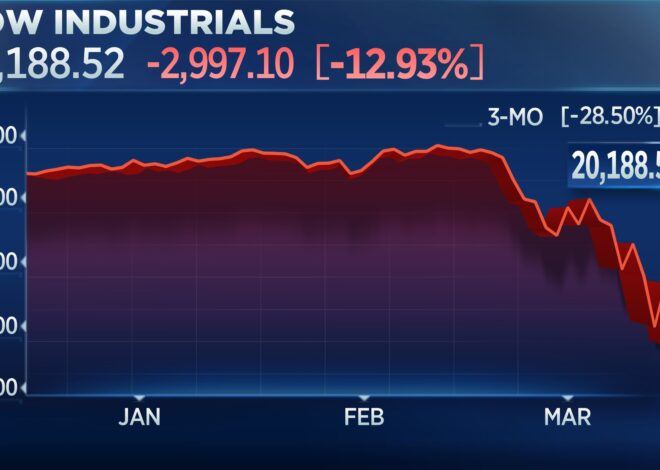
How To Survive An Economic Collapse
Learn how to survive the economic collapse, because it’s coming! Imagine waking up one day to a world where the familiar comforts of modern society have crumbled, and the stability we once knew has disappeared.
Economic collapse – a scenario that may seem like a distant possibility, but history has shown us that it can happen. The thought of facing such an event can be daunting, but with the right knowledge and preparation, you can increase your chances of survival.
In this blog post, we will explore how to navigate through an economic collapse and emerge stronger on the other side. Let’s dive in and uncover the essential strategies for not just surviving but thriving in tumultuous times.
Understanding an Economic Collapse
An economic collapse refers to a sudden and severe downturn in the economy, leading to widespread financial turmoil. It can be triggered by various factors such as excessive debt, inflation, market crashes, or political instability. During an economic collapse, essential services may be disrupted, businesses could fail, and unemployment rates may skyrocket.
The effects of an economic collapse ripple through all aspects of society – impacting individuals’ livelihoods, access to resources, and overall quality of life. This scenario often leads to social unrest and uncertainty about the future. Understanding the warning signs and underlying causes of a potential collapse is crucial for being prepared to weather the storm that follows.
As daunting as it sounds, having a basic grasp of what constitutes an economic collapse can empower individuals to make informed decisions when faced with challenging circumstances.
Signs of an Imminent Economic Collapse
In today’s uncertain economic landscape, it’s crucial to be aware of the signs that may indicate an imminent collapse. One key indicator is a significant increase in unemployment rates, signaling widespread financial instability. Additionally, a sharp decline in the stock market can be a red flag for potential economic turmoil ahead.
Rising inflation rates and a weakening currency are also warning signs that should not be ignored. When basic necessities become more expensive and purchasing power diminishes, it may point towards an impending crisis. Political unrest or instability within the government can further exacerbate economic vulnerabilities.
Keep a watchful eye on global economic trends and geopolitical tensions as they can have ripple effects on local economies. Being informed and proactive in monitoring these indicators can help you better prepare for any potential downturns in the economy.
Preparing for an Economic Collapse
In the face of a looming economic collapse, preparation is key. Start by educating yourself on survival tactics and basic skills like foraging for food, purifying water, and first aid. Stock up on non-perishable items such as canned goods, grains, and medical supplies that can sustain you during uncertain times.
Consider investing in alternative forms of currency like gold or silver to hedge against inflation. Create a financial plan that includes setting aside emergency funds and reducing debt to increase your financial resilience. Develop a network of trusted individuals who can support each other in times of crisis.
Secure your home by reinforcing doors and windows, installing security systems, and having backup power sources like generators or solar panels. Stay informed about current events that may signal an impending collapse and be prepared to act swiftly when necessary.
Remember that being mentally prepared is just as crucial as physical readiness. Stay positive, adaptable, and resourceful in facing challenges ahead. Prepare now so you can thrive later amidst economic uncertainty.
Essential Survival Skills
In the event of an economic collapse, having essential survival skills can make a significant difference in your ability to weather the storm. One crucial skill is first aid knowledge; knowing how to treat injuries and illnesses could save lives when medical help is scarce. Another vital skill is basic self-defense – being able to protect yourself and your loved ones in uncertain times.
Additionally, learning how to forage for food and purify water are invaluable abilities that can sustain you when resources are limited. Understanding how to start a fire without matches or lighters can provide warmth, cook food, and offer a sense of security in challenging conditions.
Moreover, honing practical skills like gardening, hunting, and basic construction can help you become more self-reliant in a post-collapse world. Being adaptable and resourceful will be key as you navigate through unpredictable circumstances during an economic downturn.
Remember that acquiring these essential survival skills takes time and practice; investing in them now could potentially save your life later on.
Stockpiling Supplies for a Collapse
Stockpiling supplies is crucial when preparing for an economic collapse. Be strategic in what you choose to store; focus on non-perishable items like canned food, rice, and pasta that have a long shelf life. Don’t forget about water – it’s essential for survival. Consider investing in a water filtration system or purification tablets.
Medical supplies are also vital – stock up on basic first aid items, medications, and hygiene products. Think about the needs of your family members and include any specific medications or supplies they may require. Don’t overlook the importance of tools such as flashlights, batteries, matches, and a multi-tool kit.
When stockpiling supplies, aim for variety to ensure you have a well-rounded inventory in case of emergencies. Remember to rotate your stock periodically to prevent expiration and spoilage. Stay organized with your supplies so you can easily access what you need when the time comes.
In uncertain times, having enough provisions can make all the difference between thriving and merely surviving. Take proactive steps now to secure your future wellbeing by stocking up on essential items for an economic collapse scenario.
Finding Shelter and Creating a Safe Haven
When facing an economic collapse, finding shelter and creating a safe haven becomes crucial for survival. Look for a location away from densely populated areas to reduce the risk of encountering desperate individuals. Consider fortifying your shelter with sturdy materials like wood or metal to enhance security.
Transforming your home into a safe haven involves stockpiling essentials such as food, water, and medical supplies. Ensuring you have access to renewable resources like solar power can sustain you in the long run. Create multiple escape routes and establish communication methods with loved ones in case of emergencies.
Building a community of trustworthy individuals can provide added protection during uncertain times. Collaborate on defense strategies and resource sharing to strengthen your collective resilience against external threats. Remember, solidarity is key when establishing a safe haven amidst chaos.
Navigating in a Post-Collapse World
When faced with a post-collapse world, navigating through the chaos and uncertainties can be daunting. In this new reality, adaptability and resourcefulness are key. As traditional systems break down, being able to think on your feet and make quick decisions will be crucial for survival.
Finding alternative routes and modes of transportation becomes essential when roads are blocked or inaccessible. Learning basic navigation skills using maps or landmarks can help you move efficiently from one point to another without relying on GPS or technology that may no longer be functional.
Establishing connections with other survivors in the community is important for exchanging information, resources, and support. Building trust among fellow survivors can lead to valuable alliances that enhance your chances of thriving in a post-collapse world.
Keep your senses sharp and stay attuned to your surroundings at all times. Being aware of potential threats or opportunities can mean the difference between safety and danger in this unpredictable environment.
Mental and Emotional Preparation
As we discuss survival during an economic collapse, mental and emotional preparation cannot be overlooked. The uncertainty and stress that come with such a crisis can take a toll on our well-being. It’s crucial to find ways to stay mentally strong amidst the chaos.
Practicing mindfulness and staying present in the moment can help alleviate anxiety about the future. Developing a positive mindset and focusing on solutions rather than problems can empower you to face challenges head-on.
Building a support network of family, friends, or like-minded individuals can provide comfort and strength during tough times. Sharing experiences and emotions with others who understand what you’re going through can be incredibly beneficial.
Taking care of your physical health through exercise, proper nutrition, and adequate rest is essential for maintaining mental resilience. Engaging in activities that bring you joy and relaxation can also boost your overall well-being.
Remember, while preparing physically is important, nurturing your mental fortitude is equally crucial when bracing for an economic collapse.
Rebuilding after an Economic Collapse
Rebuilding after an economic collapse is a daunting task that requires resilience and creativity. Once the initial shock has passed, it’s time to assess the damage and start planning for the future. Communities may need to come together to pool resources and skills in order to rebuild what was lost.
Investing in education and training programs can help individuals acquire new skills that are valuable in a post-collapse economy. Adapting to new circumstances and embracing change will be crucial during this rebuilding phase.
Entrepreneurship may flourish as people seek out opportunities to create businesses that cater to the needs of their community. Innovation and resourcefulness will be key drivers of success in this new economic landscape.
While rebuilding after an economic collapse won’t happen overnight, with determination and collaboration, it is possible to lay down the foundations for a stronger and more resilient society.
Conclusion
In a world where economic stability can be uncertain, being prepared for an economic collapse is crucial. By understanding the signs, preparing supplies, acquiring essential survival skills, and focusing on mental and emotional readiness, you can increase your chances of surviving and even thriving in a post-collapse world.
Remember that rebuilding after an economic collapse will take time and perseverance. By staying adaptable, resourceful, and connected to others in your community, you can work towards creating a new normal amidst the challenges.
Stay informed, stay vigilant, and most importantly – stay hopeful. The resilience of the human spirit knows no bounds when faced with adversity. So equip yourself with knowledge and readiness to weather any storm that may come your way.
Here’s to being prepared for whatever lies ahead – together we can overcome anything that comes our way.




Your article on surviving an economic collapse is insightful and well-structured, offering practical strategies that cover everything from preparedness to essential skills and mental resilience. The detailed breakdown of warning signs, survival tactics, and long-term planning is both thorough and accessible, making complex topics easy to understand. It’s a timely and valuable guide that helps readers feel empowered rather than overwhelmed by the prospect of such a crisis. Great work in providing such a comprehensive and encouraging resource!
Hello BrightDigiMinds,
Thank you for such an enlightening comment on such an important topic. Unfortunately, we may have to face such a crises worldwide. I sure hope not but the best we can do is prepare and try to help others the best we can. Thanks again and the best of luck to you.